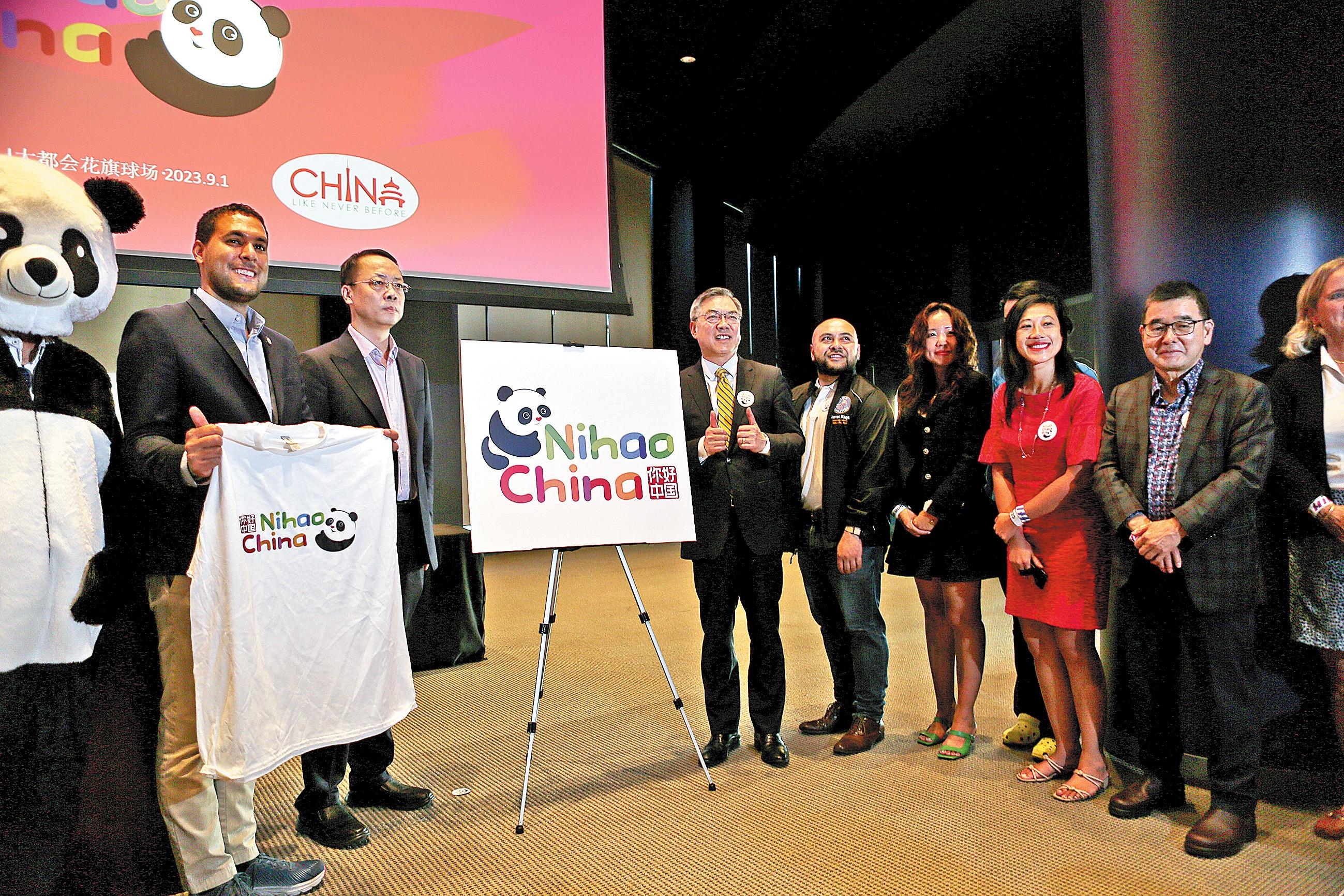Shutting out China means closing door on opportunities for US firms, Xie tells forum
 Huang Ping (fifth from right), consul general of China in New York, the United States, and guests attend the debut ceremony of China’s new tourism brand Nihao China, which means Hello China, during the 14th annual “An Evening of Chinese Culture” event held at the Citi Field baseball park in New York on Sept 1. The annual event was hosted by the Sino-American Friendship Association.
(PHOTO / XINHUA)
Huang Ping (fifth from right), consul general of China in New York, the United States, and guests attend the debut ceremony of China’s new tourism brand Nihao China, which means Hello China, during the 14th annual “An Evening of Chinese Culture” event held at the Citi Field baseball park in New York on Sept 1. The annual event was hosted by the Sino-American Friendship Association.
(PHOTO / XINHUA)
As China and the United States look to stabilize bilateral relations through a series of high-level exchanges, a top Chinese diplomat called for removing disruptive “decoupling” moves and taking concrete steps to get the relationship back on track.
Addressing the fifth US-China Business Forum organized by Forbes media group on Aug 29, China’s Ambassador to the US Xie Feng said the biggest risk is any “decoupling” between the two countries, and the largest source of insecurity comes from any confrontation between them.
Citing trade and investment data, Xie expressed his bewilderment at the US’ ongoing “decoupling” moves.
In the first half of 2023, China-US trade dropped by 14.5 percent year-on-year, which is a direct consequence of the US’ move to levy Section 301 tariffs on Chinese imports, “abuse” unilateral sanctions and further tighten up export controls, according to the ambassador.
“Livelihoods of many families have been affected, and businesses in both countries have borne the brunt,” Xie said via video link.
It is “simply confusing” why the US, which has repeatedly urged China to expand access for foreign investment in the past, is now imposing restrictions, he said, referring to an executive order signed on Aug 9 by US President Joe Biden to curb critical technology investments in China.
Xie said the executive order violates the principle of free trade, and instead of containing China, it will only curtail the rights of US businesses to develop in China.
The US has called on China to level the playing field, but it is depriving Chinese businesses of the right to compete, he said, pointing out that the US has placed more than 1,300 Chinese entities and personnel on its sanctions list.
“Average US tariffs on Chinese products are at 19 percent, while China’s tariffs on US goods are only 7.3 percent on average. Is this fair? Does this truly serve US interests?” he said.
Xie said that in the past five years, the return rate of foreign direct investment in China reached 9.1 percent, and that in the first half of this year, 24,000 foreign-invested enterprises were established in China.
During the same period, investment from France, the United Kingdom and Japan went up 173 percent, 135 percent and 53 percent, respectively, he noted. “To shut out China is to close the door on opportunities, cooperation, stability and development,” he said.
Xie said that over the past few years, China-US relations ran into serious difficulties, which neither serves the fundamental interests of the two peoples nor meets the common expectations of the international community.
“We need to find a path for China and the US to get along in the new era. We need to find a path for expanding mutually beneficial economic cooperation and trade between China and the US,” he said.
As the US and China are the two largest economies and permanent members of the United Nations Security Council, any conflict or confrontation between the two will not produce a winner, but only spell disaster to the world, the ambassador said.
Responding to Western media reports about the Chinese economy, Xie said that spreading “doom and gloom” will not make anyone feel better, and that the world will do better when China fares well.
The post-COVID economic recovery will be characterized by undulating progress that will sometimes have twists and turns, but it is important to see what will happen in the long run, he added.
China has the most complete industrial system, a market with the most dynamic domestic demand, and high-caliber workers and entrepreneurs, with a middle-income population surpassing 400 million.
“There is ample room in our policy toolkit. The fundamentals sustaining China’s long-term growth remain unchanged,” Xie said.


